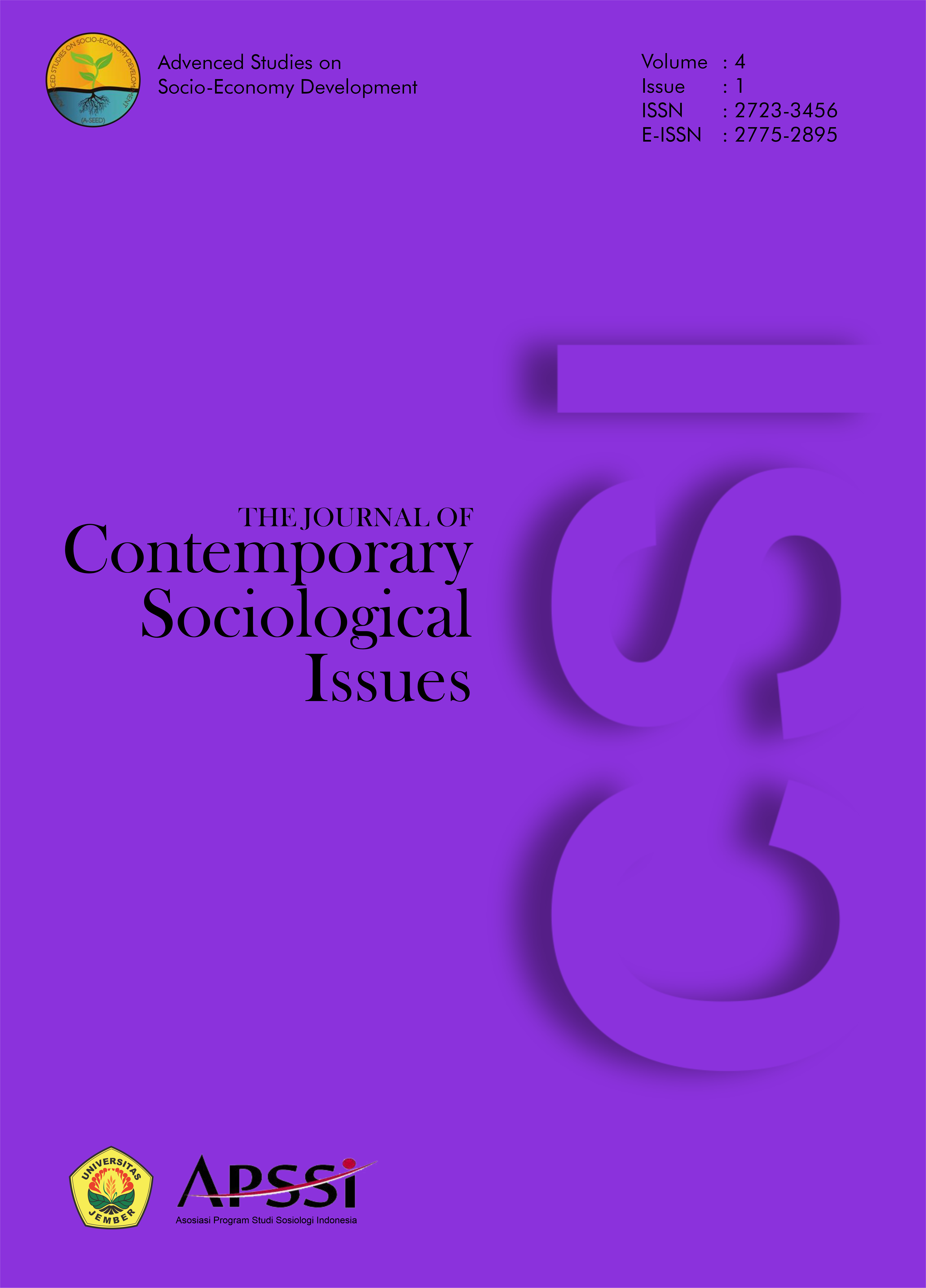- COOPERATED WITH
Current Issue

The Journal of Contemporary Sociological Issues (CSI) is managed by Advanced Studies on Socio-Economic Development (A-SEED) and published by the University of Jember. CSI is oriented to develop multi-disciplinary research that collaborates with social humanities studies, particularly on the sociological dimension. Thus, sociological perspectives, theories, and methodologies are being used to encourage social humanities research and contribute alternative ideas. By promoting empirical inquiry across global and local scales, CSI is committed to representing the complexities of social transformation today, especially for creating dialectics and the spirit of emancipation.
The Journal of Contemporary Sociological Issues (CSI) publishes original research articles. The journal prefers papers that extend existing theories or generate a new approach through interpretive engagement with empirical cases. Articles based on single-country case studies should indicate and develop the broader relevance of their analyses for an international readership. The journal does not publish an interpretation of single texts. However, it does consider critical, contextualized readings that similarly indicate and develop the broader relevance of their analyses to the field.
The objective of this Journal comes from the sociological perspective on "Social Transformation" and its current effect on social practices and realities in the globalized world. Thus, the scope of this journal covers interdisciplinary studies on contemporary sociological issues and beyond.
CSI is primarily focused on issues related to economic and sustainable development, media and communication, youth and marginal communities, feminism and woman rights, post-colonialism and social movements, social transformation, political rights, religious practices, health care systems, minority rights and identity, peasantry and land rights, tradition and indigenous rights, social changes, demographic and labor, alternative educational systems, tourism and heritage, demography and working-class, bureaucracy, and good governance, Conflict, and Peace, environmental and conservation, and various additional cultural articulations issues in the local or global context.
Front Cover
Articles
Back Cover

Th e Journal of Contemporary Sociological Issues (CSI) is managed by Advanced Studies on Socio-Economic Development (A-SEED) and published by the University of Jember. CSI is oriented to develop multi-disciplinary research that collaborates with social humanities studies, particularly on the sociological dimension. Thus, sociological perspectives, theories, and methodologies are being used to encourage social humanities research and contribute alternative ideas. By promoting empirical inquiry across global and local scales, CSI is committed to representing the complexities of social transformation today, especially for creating dialectics and the spirit of emancipation.
The Journal of Contemporary Sociological Issues (CSI) publishes original research articles. The journal prefers papers that extend existing theories or generate a new approach through interpretive engagement with empirical cases. Articles based on single-country case studies should indicate and develop the broader relevance of their analyses for an international readership. The journal does not publish an interpretation of single texts. However, it does consider critical, contextualized readings that similarly indicate and develop the broader relevance of their analyses to the field.
The objective of this Journal comes from the sociological perspective on "Social Transformation" and its current effect on social practices and realities in the globalized world. Thus, the scope of this journal covers interdisciplinary studies on contemporary sociological issues and beyond.
CSI is primarily focused on issues related to economic and sustainable development, media and communication, youth and marginal communities, feminism and woman rights, post-colonialism and social movements, social transformation, political rights, religious practices, health care systems, minority rights and identity, peasantry and land rights, tradition and indigenous rights, social changes, demographic and labor, alternative educational systems, tourism and heritage, demography and working-class, bureaucracy, and good governance, Conflict, and Peace, environmental and conservation, and various additional cultural articulations issues in the local or global context.








